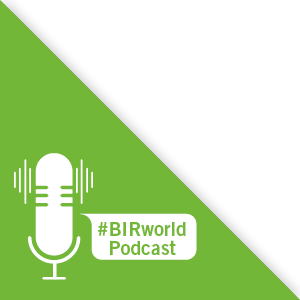Having been in lockdown since mid-March, there has been a slow but sure move in a more positive direction. The various national and regional authorities in the Benelux area are looking at ways to continue opening up day-to-day life and the economy. This is coming as a relief to many but is not proving to be an easy or smooth process, with heavy pressure applied to key decision-makers from all sides and levels within society. The pandemic has impacted life in so many ways and to such a large extent that a solution in one area is causing issues elsewhere, leading to tension as well as confusion, frustration, uncertainty and disappointment. Since no blueprint is available off the shelf, this needs to be done together and with respect.
What does this mean for our industry? Various contacts have independently highlighted the number of phone calls in recent days as people are allowed to resume their activities and are looking to find out who’s up and running, who’s still closed and who’s working from home, as well as to get a market update. Only a minority of the calls are about actual business.
In general, industry activity levels are slowly picking up but feed to the yards and to collection points (if they are open) remains limited. Some of the larger industrial manufacturing plants have increased their activities too but are still at a reduced or limited capacity (typically 20-30%). This will remain so for a while.
Around this time of year, there is normally the start of a summer clearance ahead of the holidays in July. However, 2020 will be different and it will be a case of waiting and seeing how companies deal with the summer holiday period given the losses suffered recently.
For the various non-ferrous metals, copper is probably performing the best or, as one contact on the trading side described it, copper is the best of the worst. Within the Benelux region, there is demand for copper units from the consumers present. Interestingly, Aurubis has been given the green light by the European Commission to merge with Metallo Group, the Belgium-based consumer of copper-, tin- and lead-bearing scraps.
Similar demand is out there for zinc, but the availability of units and, related to this, the number of offers remain very low. Local zinc consumers have been helped by the closure of another market player in Germany. For lead and especially car battery recycling, recent weeks and the coming months have been, and will remain, a challenge. With all collection points closed, hardly any batteries have been collected. With the general lockdown, most cars have not been in use and so fewer older batteries have required replacement. Some are hoping that a similar scenario will be played out as after the winter period when, with cars not having been in use, batteries need to be replaced once things open up again. However, with car sales reduced to virtually zero, demand for the lead alloys used in battery manufacturing is down too.
This is similar for other metals such as aluminium for which demand is driven by the automotive sector.
For stainless, better numbers can be found on exports, although exporters are facing logistics challenges such as port congestion. As for scrap coming into the Benelux area, imports have all been secured as the port authorities at Rotterdam, Antwerp and Zeebrugge, for example, have been doing their utmost to keep the facilities up and running.
With the virus having negatively impacted automotive, aerospace, infrastructure and consumer behaviour, it will take a while before trust is restored and we can return to “the good old days”.

Jurgen van Gorp
Metallo Belgium N.V., Board Member of the BIR Non-Ferrous Metals Division
Country
 Benelux
Benelux
